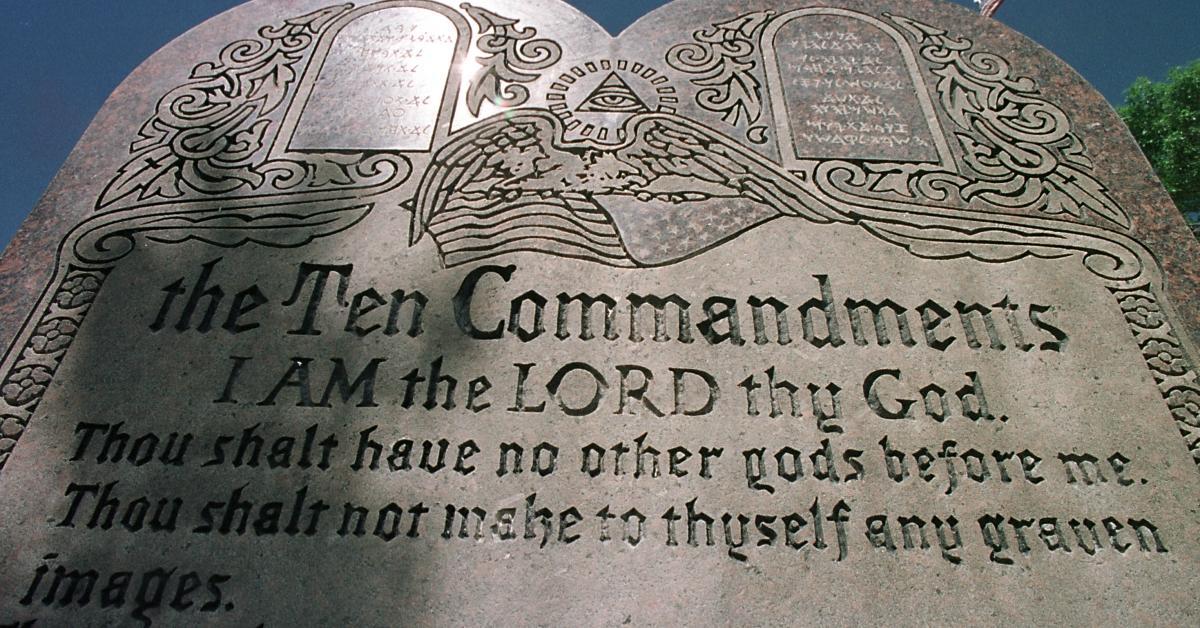A federal appeals court recently upheld a decision that a Louisiana law mandating the display of the Ten Commandments in public school classrooms is unconstitutional. Last year, Louisiana became the first state to require such displays in “large, easily readable font” in every classroom. This decision followed a lawsuit by nine Louisiana families against the state’s education department and local school boards, arguing the law violated the First Amendment and encroached on parental rights regarding their children’s religious upbringing.
Supporters of the law argue that the Ten Commandments have played a significant role in shaping United States history. They believe that displaying these commandments in classrooms is a nod to the nation’s founding principles. However, the opponents of the law maintain that it infringes upon the First Amendment, which guarantees freedom of religion and prohibits government endorsement of a particular religion.
The judges delivered a unanimous decision siding with the families, declaring the law “facially unconstitutional.” The court’s ruling stated, “Parents and students challenge a statute requiring public schools to permanently display the Ten Commandments in every classroom in Louisiana.” The district court initially found the statute unconstitutional and issued an order to halt its enforcement. This appellate court ruling further solidifies that decision.
The ruling potentially sets the stage for the case to go before the United States Supreme Court, which currently has a 6-3 conservative majority. This could lead to a significant national discussion on the intersection of religious freedom and government regulations in education. Meanwhile, Texas is gearing up to implement a similar law, having already passed it through both state chambers earlier this year.
This decision has sparked discussions among conservatives who value the historical significance of the Ten Commandments. They argue that acknowledging this history is crucial in maintaining the cultural and moral fabric of the nation. Critics, however, see this as a clear overstep into religious territory by the state.
The Louisiana case highlights the ongoing debate over the role of religion in public spaces, particularly in education. While some view this as an essential acknowledgment of historical values, others see it as a breach of constitutional rights. This ruling adds another layer to the national conversation about religious expression and state involvement.
The supporters’ perspective is rooted in a belief that the Ten Commandments are foundational to American governance and legal systems. They argue that recognizing this in schools is a way to honor the nation’s past. Opponents remain steadfast in their belief that such laws violate the separation of church and state.
This legal battle underscores the tension between maintaining historical traditions and adhering to constitutional freedoms. The appellate court’s decision reinforces the importance of upholding constitutional rights in educational settings. As the conversation continues, many are watching to see how similar laws in other states will fare.
With Texas on the brink of enacting a similar law, the implications of this ruling could have a broader impact. It raises questions about how states can balance religious acknowledgment with constitutional mandates. The debate is likely to continue as more states consider similar legislation.
This case is a reminder of the delicate balance between respecting historical influences and protecting individual rights. It reflects a broader national dialogue about the place of religious symbols in public institutions. As this conversation evolves, it will be crucial to consider both historical context and constitutional protections.
The ruling is a victory for those who prioritize constitutional liberties over religious displays in public schools. It emphasizes the need to carefully consider the implications of such laws. As states navigate these complex issues, the importance of upholding the First Amendment remains paramount.
While the conversation is ongoing, this decision is a significant step in clarifying the boundaries of religious expression in public education. It serves as a reminder of the core values enshrined in the Constitution. As more states explore similar legislation, this ruling will undoubtedly influence future legal battles.
The implications of this decision extend beyond Louisiana, potentially affecting similar laws nationwide. It highlights the broader struggle to reconcile religious heritage with constitutional principles. This ruling reinforces the importance of maintaining the separation of church and state in educational settings.
As states like Texas move forward with similar laws, the outcome of this case will be closely watched. It is a pivotal moment in the ongoing debate over religious expression in public life. This decision is a testament to the enduring relevance of the First Amendment in contemporary legal challenges.



